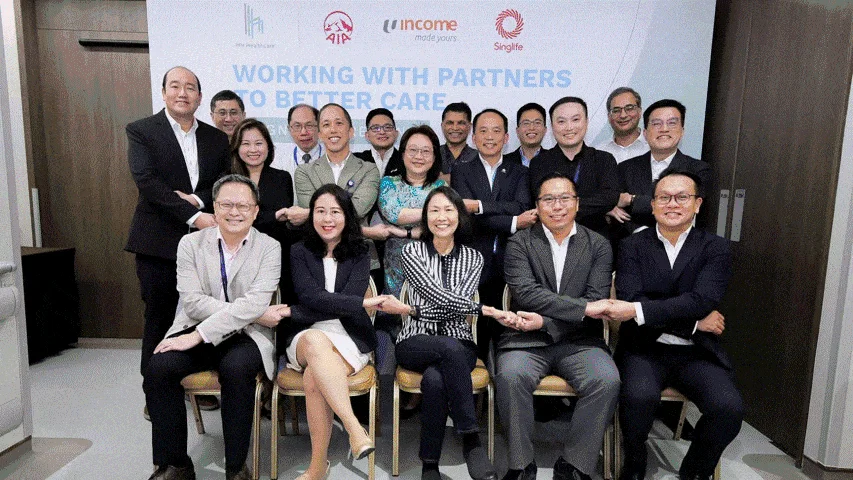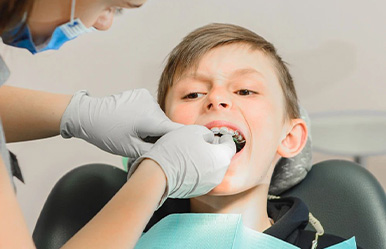A Guide to Screen Time for Kids During Home Quarantine
2022-04-21
Now that families are confined to their homes, parents are grappling with just how much screen time to allow the children. Here are ways to minimize the risks and make the most out of screen time during lockdown.
As families adapt to the new normal of learning, working and playing from home, it’s natural that the amount of time children spend with screens has increased.
This might worry some parents – after all, we’ve been warned about the negative effects of too much screen time on our children. However, it’s important to remember that the ‘extra’ screen time is serving a purpose during this time: they allow us to carry on with our work, education and social lives from the safety of our homes.
Instead of worrying about the inevitable increase in your child’s screen use, experts suggest focusing on making the most out of it.
Here’s what you should know about screen time risks, and how you can aim for healthy screen time during this period.
Understanding screen time health risks
Studies have shown that excessive screen time can lead to obesity problems, poor quality sleep, eye strain, as well as educational and behavioral problems.
It’s important to note that most of these health effects regarding excessive screen time is connected to a reduction in other activities, such as active play and socializing, which are vital for your child’s learning and development.
Most of these risks can be minimized by ensuring that your child balances time on screens with other physical activities and monitoring the quality of the content your child is exposed to.
Do screen time guidelines still apply during this stay home period?
The American Academy of Pediatrics (AAP) has previously suggested these screen time limits:
Children under 18 months should avoid screen time, other than video-chatting
Children aged 18 months to 2 years can watch or use high-quality programs or apps if adults watch or play with them to help them understand what they’re seeing
Children aged 2 – 5 years should have no more than 1 hour a day of screen time with adults watching or playing with them
Children aged 6 years and older should have consistent limits on the time they spend on the media they consume, regardless of medium
However, acknowledging the exceptional circumstances now, the AAP published this statement on March 17, 2020: “While limits are still important, under these stressful circumstances, kids' screen media use will likely increase.”
Rather than worry about the length of time your child is spending on the screens, you can focus instead on keeping screen use positive and helpful.
Tips to make the best use of screen time during home quarantine
Opt for high-quality content
The effects of screens on children depends less on time and more on the type of content they engage with when using a screen.
High-quality screen content can benefit your child greatly, allowing your child to learn new skills and exercise creative problem-solving. When looking for high-quality screen content, ask yourself these questions:
Does the content keep your child focused on, or distracted from, the learning goal?
Do the tasks challenge your child to think and explore, or does your child consume the content mindlessly?
Does the content introduce meaningful new concepts that your child can understand?
Does it allow you to interact with your child, such as having a discussion about what is happening on screen?
Use screens together
If your child spends time alone with a device for hours on end, that’s unlikely to be healthy. Engaging with your child and finding ways for your child to engage socially is important in practicing healthy screen use.
For example, when your child is using a screen, get involved and talk to your child about what’s going on in the program they are watching. If a new concept is introduced, take the opportunity to explain it to your child.
You could also set up a time to engage with a screen activity together with your child – such as playing an online game with them, or watching a movie or theatre play together. Encourage your child to explore or continue socializing with their friends virtually too, such as a video call with family or friends, or participating in a virtual study session.
Increase healthy activities, not just screen time
Balance screen time with offline activities that help your child play, relax and communicate. Indoor physical exercises, helping with household chores as well as simple baking/cooking, doing a craft project, playing board games, audio books or free play are all helpful alternatives to screen time for children.
You can also encourage your child to practice skills they picked up online, such as dancing, drawing, or craft work from an instructional online video. Parents should be consistent and set limits to screen time for children.
Ensure regular breaks from the screen
Continue instilling healthy eye care habits in your children, such as taking regular breaks and maintaining adequate face-to-screen distance when using digital devices.
There is increasing evidence to suggest that the intensity of near work, that is, sustained reading at closer distance with fewer breaks, may be more important than the total hours of near work contributing to myopia progression.
As a guide, remember the 20-20-20 rule: Take a break every 20 minutes by looking at an object 20 feet (or 6m) away for 20 seconds. Looking into the distance allows your eyes to relax.
Ensure 60cm of distance between the face and computer screens and 30cm of distance when using phones or tablets.
Try to avoid screen time 1 to 2 hours before bedtime, as too much blue light exposure from screens can make it harder for us to fall asleep.
As we adapt to working and learning from home, limiting screen time can feel like a futile endeavor. Aim for healthy screen time instead. If you have any concerns about your child’s behavior or learning, you can see your pediatrician for advice.










































